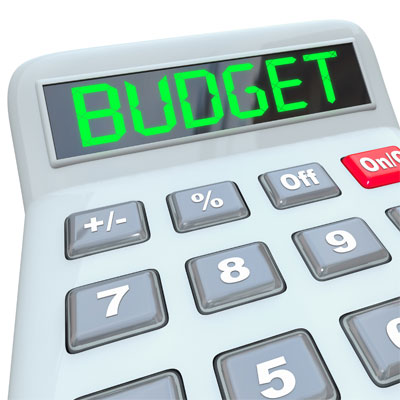5 Super Simple Budgeting Tips
 Budgets are not a sexy topic. In fact, most people would rather do anything else than keep to a budget. However, as boring of a topic as it may be, knowing where your money is going is the key to knowing how to control it. When you think of a budget as a way to control your wealth instead of a way to control you and your spending, it’s a little easier to digest.
Budgets are not a sexy topic. In fact, most people would rather do anything else than keep to a budget. However, as boring of a topic as it may be, knowing where your money is going is the key to knowing how to control it. When you think of a budget as a way to control your wealth instead of a way to control you and your spending, it’s a little easier to digest.
The main obstacle to keeping a budget is that it can become time consuming and difficult to keep track of your expenses. Let’s be honest, would you rather spend an hour going over your receipts or spend time with your family? The good news is we understand. That’s why we took some time and came up with these five simple and easy tips for keeping a budget:
Know why you’re budgeting.
What’s the primary motivation behind your budget? Are you saving for a new car or home? Trying to eliminate past debt? Whatever your reason, it helps to keep constant reminders to help keep you motivated when something tempts your eye. Post pictures of your dream car or home or the bank balance you want to have in places where you will see them frequently. A strong reason for any goal can do wonders towards helping you actually achieve your goals.
Keep things simple.
If your system for keeping track of your budget is overly complicated, you won’t do it. If the budget is too rigid, you’ll also end up going off budget. Take time to really understand your personal spending habits, your goals and the best way to achieve them. If you’re likely to just charge it and forget, you might need to switch to a cash system. If you don’t write things down in your checkbook, get an app for your phone instead.
Really analyze what systems will work best for you. In the end, if you don’t follow the guidelines you’ve put in place for yourself because they are too impractical, you’ll never be able to stick to the budget.
Pay bills when you get paid.
This is an easy way to make sure you don’t overspend in other areas and come up short on a bill that is due later in the month. Split up your bills to match up with your pay periods. For example, if you get paid weekly, keep track of what bills are due within the week. When you get paid, pay all of the bills that will be due that week. Do this as the first step each time you get paid. If your pay period is different, adjust accordingly. Having a set system for paying your bills ensures that they actually get paid, and on time.
Set up an emergency fund.
This is especially important if your income fluctuates month-to-month. To handle this, create a short-term emergency fund (not your savings!) that has at least a month to two worth of income. That way if you have a bad month, or something unexpected pops up, you can draw from your emergency fund instead of from your savings account.
Only use cash for discretionary expenses.
Overspending is problem area for many people, and it almost always happens when it comes to discretionary spending. Once you determine what your budget is for things like dining out, travel, gifts, personal care, etc., take that money out in cash and put it in envelopes dedicated to each category. This will keep you from overspending and will help you keep track of exactly how much you are spending in certain areas. Who knows? You might end up with extra money at the end of the month because you didn’t want to part with all of your cash!


Latestpost
14
Jul
Factors That Can Help First-Time Borrowers Establish Credit
It is one thing to have bad credit in today’s wo ...

Download our
FREE GUIDE
and get weekly money-savings tips!
KnowledgeBase
Essentials




